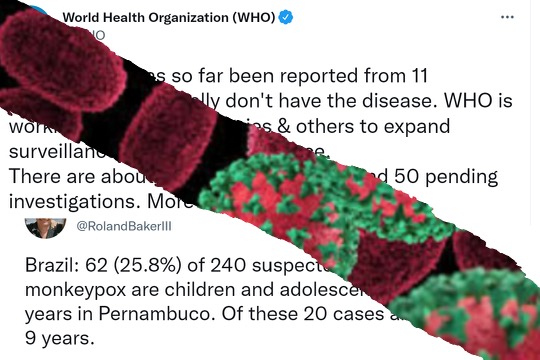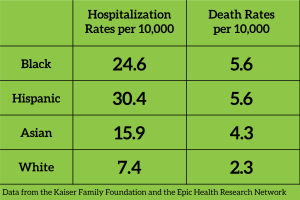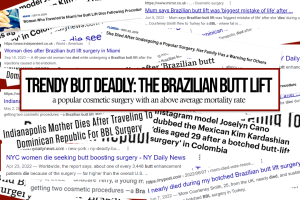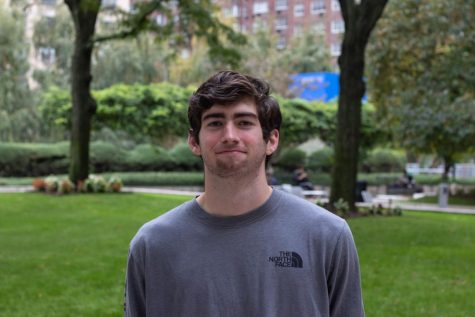Fordham Responds to the Monkeypox Outbreak
The university released facts and guidelines on Aug. 10 to prepare students from the poxvirus spreading across the country

As monkeypox continues to spread, the city gears up for an increase in cases. Vaccination sites are opening across New York, and new guidelines from the CDC are advising people on precautionary measures.
August 26, 2022
As the rate of monkeypox infections increases in New York City and around the world, people are beginning to express concern about the virus. Fordham’s University Health Services (UHS) sent an advisory email to the Fordham community on Aug. 10 that outlined steps students can take to protect themselves and others from monkeypox.
Although monkeypox, an infection related to smallpox, is rarely fatal — with over 99% of individuals likely to survive, according to the email from UHS — symptoms can range from manageable to severe. Patients often have a fever, swollen lymph nodes, a headache, muscle soreness and, most notably, a rash distinctive to poxviruses. Symptoms can be extremely painful and permanent scarring from the rash can occur. Complications may also arise, albeit rarely.
In addition, monkeypox is now being globally transmitted faster than ever before. The World Health Organization (WHO) designated monkeypox as a “Public Health Emergency of International Concern” on July 23, 2022, a designation previously reserved only for COVID-19 and polio.
As of Aug. 24, the Centers for Disease Control and Prevention (CDC) reported 45,535 global cases of monkeypox. There are currently an estimated 2,800 cases in New York City, according to the New York City Department of Health and Mental Hygiene (DOHMH). While that figure may pale in comparison to staggering COVID-19 statistics, the U.S. leads the world in total number of cases, with the CDC reporting 16,602 cases.
Monkeypox is far from a new virus. It was first discovered in 1958 and is similar to the eradicated smallpox virus in both its symptoms and treatment. For that reason, many clinicians already have a head start on managing monkeypox outbreaks.
Unlike COVID-19, monkeypox rarely spreads through respiratory droplets. This alone makes it much less transmissible than other viruses. The most common transmission of the virus is due to close contact with an infected individual. In most cases, the contact must be intimate or prolonged, according to the CDC and the WHO.
“There is nothing intrinsic about the virus that makes men who have sex with men more susceptible to infection.” Dr. W. Ian Lipkin, Director for the Center of Infection and Immunity with the Mailman School of Public Health at Columbia University
UHS stated that individuals should “avoid close, skin-to-skin contact” with people who have a rash resembling monkeypox. It also recommended that individuals should not share utensils and cups with an infected individual and refrain from touching or handling the bedding, clothing and towels of a person who has contracted monkeypox. Additionally, the email reiterated that students should wash their hands or use an alcohol-based hand sanitizer frequently.
Dr. W. Ian Lipkin, Director for the Center of Infection and Immunity with the Mailman School of Public Health at Columbia University, emphasized that although most of the cases being reported are among men who have sex with men, “there is nothing intrinsic about the virus that makes men who have sex with men more susceptible to infection.” Other groups are also at risk, particularly racial and ethnic minorities, who appear to be disproportionately affected by the virus. Demographic information like this can be crucial to providing effective guidelines and preventing monkeypox’s spread.
By determining the impact of the virus on different populations, health officials can ascertain the severity of the outbreak, craft the structure of health advisories for communities, and establish an effective approach to halt the transmission of monkeypox.
The email from UHS also contained a link to find monkeypox vaccination sites in New York City, as the DOHMH has begun distributing vaccines to those who are displaying symptoms and who might be susceptible to the virus. According to the DOHMH, men 18 years or older who have sex with men and have had multiple sexual partners over the previous 14 days are eligible to get vaccinated.
The vaccination is free and the department recommends vaccination if your partners are showing symptoms of monkeypox; if you met recent partners through online applications or at large gatherings; or if you have a condition that may increase your risk for severe disease if you contract monkeypox.
The UHS email also stated that individuals should not come to campus if they have symptoms of monkeypox and should contact their health care provider immediately. UHS is arranging virtual appointments for those with symptoms and offering monkeypox testing.
Get the latest Fordham sports updates on your Twitter feed. Follow The Observer’s sports Twitter page here.













